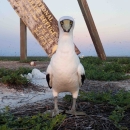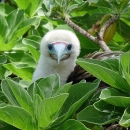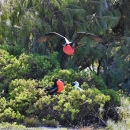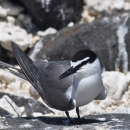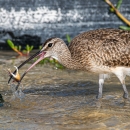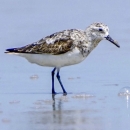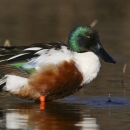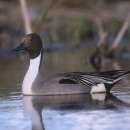Seasons of Wildlife
Due to the location of Wake Atoll National Wildlife Refuge, shore and seabirds can be found nesting year-round.
Featured Species
Wake Atoll National Wildlife Refuge is home to numerous species of unique wildlife. There have been 100 species of corals reported and abundant fish populations with at least 323 recorded species, including large populations of the Napoleon wrasse, sharks of several species, and large schools of the bumphead parrotfish, all of which are globally depleted. Foraging populations of the threatened green sea turtle and resident populations of spinner dolphins are also found at Wake.
The islands support a rare grass species, Lepturus gasparricensis, and were home to the endemic Wake rail until it went extinct during World War II. Wake supports 12 species of resident nesting seabirds and 6 species of migratory shorebirds; all of which are populations of regional significance. Black-footed albatrosses and Laysan albatrosses recently recolonized Wake; one of few northern albatross colonies outside the Hawaiian archipelago.
Wake is home to several species of reptiles and invertebrates also. Mourning geckos, stump-toed geckos and house geckos frequent the island, along with snake-eyed skinks, azure-tailed skinks, and green sea turtles. Strawberry hermit crabs, horned ghost crabs, fiddler crabs, thin-shelled rock crabs, and scorpions have been observed on Wake.





